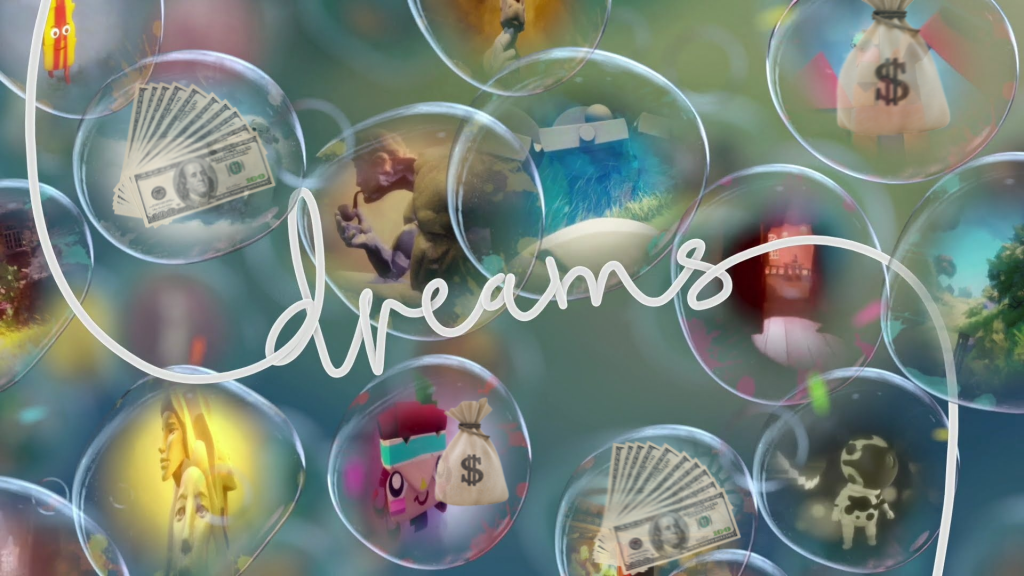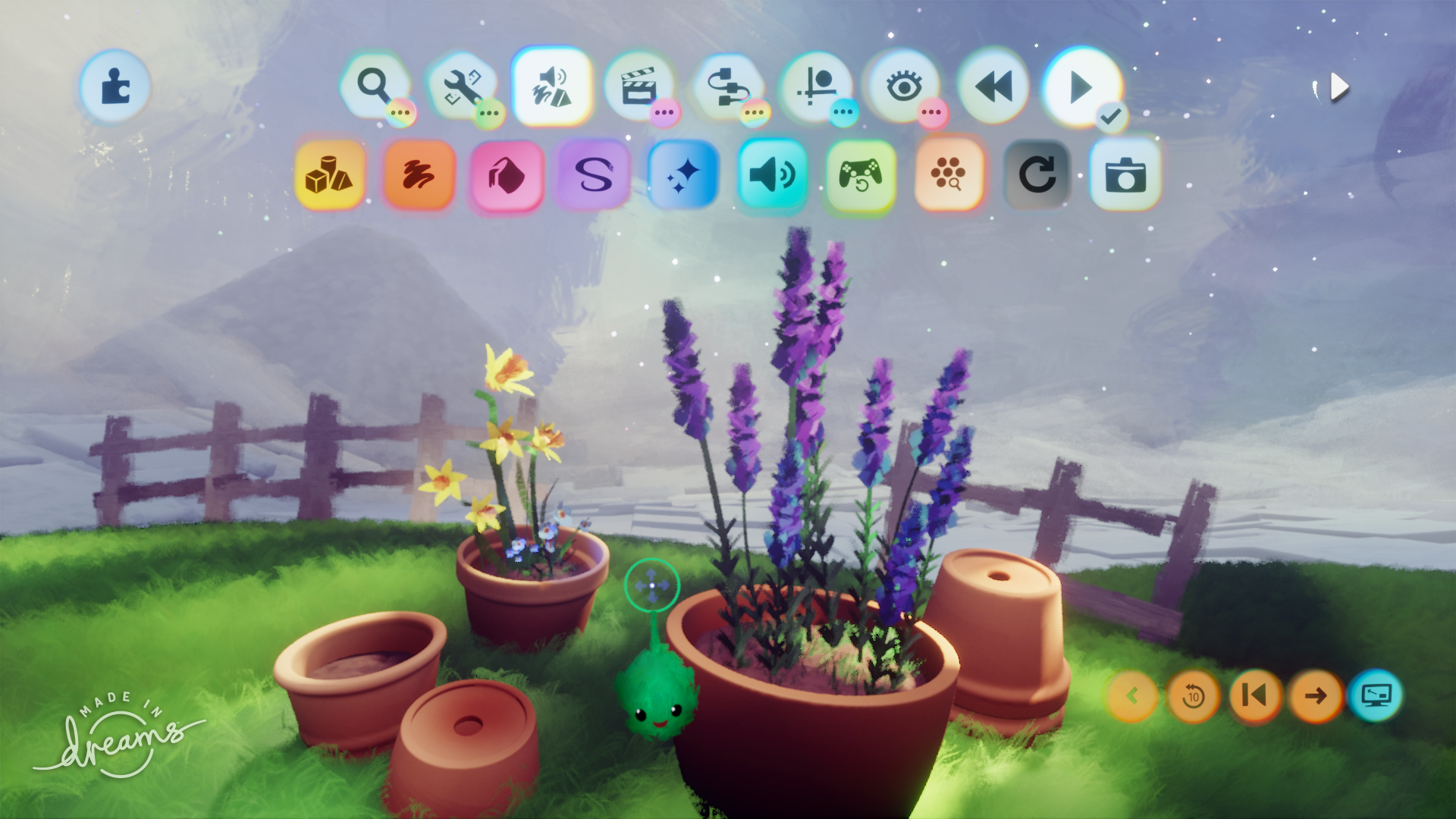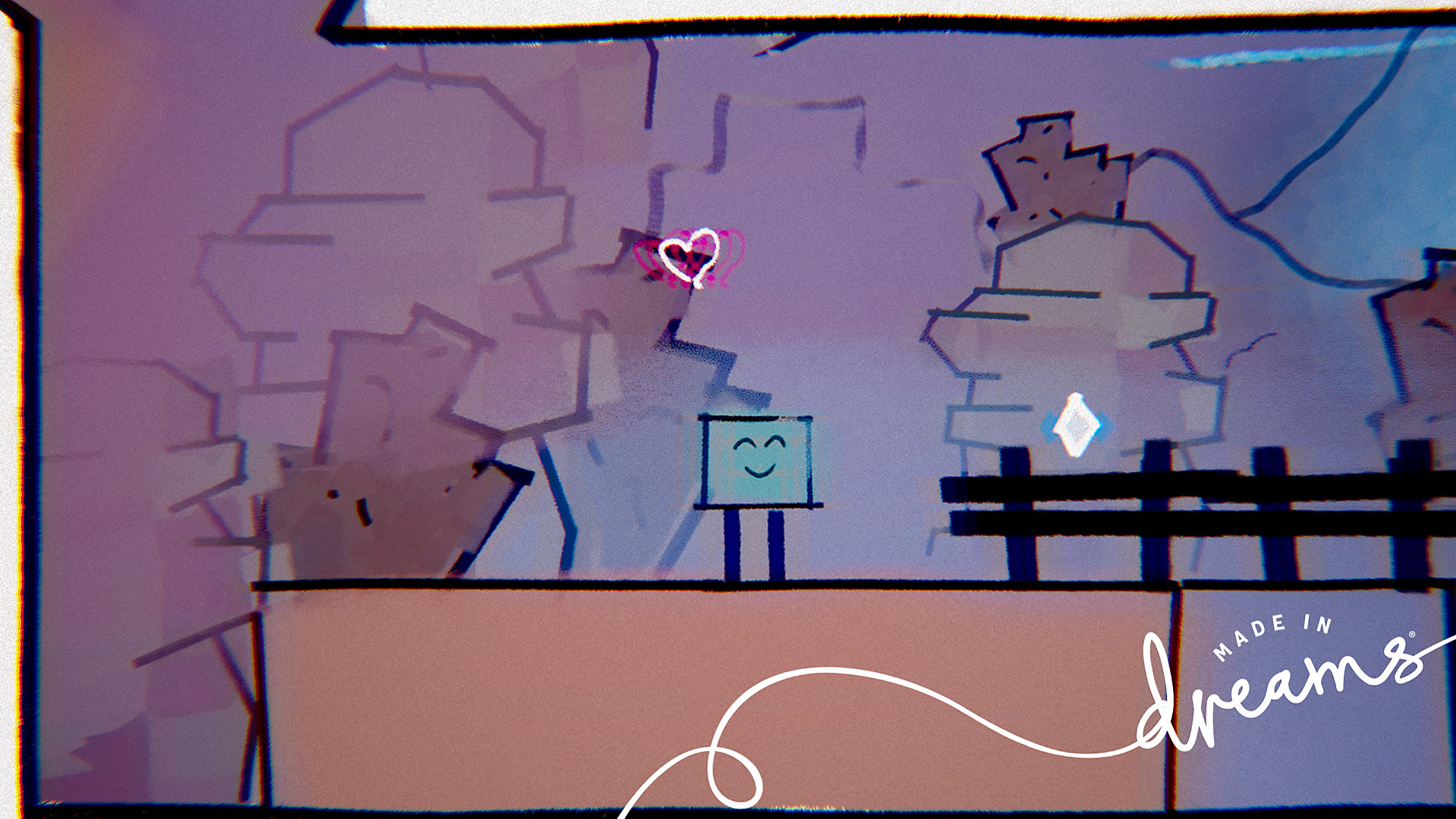You just went straight down into the comments, didn’t you? You read the title, got mad about the prospect of having to pay for “content that should be free,” and probably posted some rant about the exploitative practices of the modern games industry. Thanks for that, commenter that isn’t even reading this! I knew this subject would ruffle some feathers, but I feel like it’s an important topic to talk about. For the rest of you who are still here, thank you for indulging me.
Dreams is an incredible piece of software, and now that we’ve got it available to the public in early access, we’re seeing some brilliant user creations come to life thanks to the imaginative minds working with it, including a fan remake of the original Metal Gear Solid, the opening of Marvel’s Spider-Man, and a bunch of other unique original creations. And this has all just been within the last month! Effectively an entire game engine available right on a home console, Dreams gives unprecedented access to creators like never before. We’re seeing the rise of accessibility in the creative space, but that also paves the way for a lot of issues that bubble up under the excitement.
One of the big things that Dreams has going for it is to be billed as a “PS4 game.” It’s Media Molecule’s follow-up to LittleBigPlanet, right? It allows players to create games of their own and play around with other people’s creations. But at its core, people will still always think of it as a game, and that allows it to get away with what can only be called the exploitation of the creators that use the platform. Dreams isn’t the first product to warrant these concerns (remember Sony’s whole “Play. Create. Share” mantra a number of years back?), but it’s the one that’s stepped over the line from “game” to something else entirely.
To be honest, the whole “Play. Create. Share” idea is riddled with problems, not the least of which is compensation for creators. I remember that I left Instagram years ago because of an update to its EULA (end user license agreement) that essentially allowed them to use your photos for any reason. So you take a cool picture, it gets used in a massive marketing campaign, and you see nothing of that revenue stream. The same problem plagues Dreams. An uber popular creation is just that: popular. But being popular and going viral doesn’t necessarily pay the bills. It’s the same “for exposure” problem that creators have, seeing their work devalued because of how seemingly freely available it is. (Just take a look at the For Exposure Twitter account for real life examples of creative work being devalued.)
Dreams of Perceptions
As a writer, I run into this problem all the time. Anyone can write, right? So what value is writing? Even if it’s good, the perception is that writing is cheap because anyone can do it. The music industry faces the same problems. Music is so easy to create that the market is absolutely flooded with music. People begin to expect it for free due to platforms like Spotify, or Netflix on the film and TV side of things. The value perception goes entirely out the window because of the perceived ease of creation and free availability.
The gaming industry has already had its fair share of devaluing components. Deep discounts and sales on games make it difficult to prove that there’s much value in someone buying a game on day one for full price. Even as games get more and more expensive to make in the triple-A space, there’s a repeated expectation to get things for cheap or free. Just look at the absolute outrage from people when the free PS Plus games are announced each month. People get so upset when their $60 per year (the cost of one new game), doesn’t get them 24 of the newest highest quality games over the course of the year.
Dreams has great ambitions and is an incredible set of tools for creators. Its ability to be collaborative with other creators means that there are near infinite possibilities, limited only by your dreams. Of course it’s also limited by your time, and time isn’t cheap. While the Dreams early access may focus on creators, when the full game is released, people will buy it on the promise that they can play near countless creations from other people online. That means that Media Molecule is taking a profit from people based on the creations of its players; Creations it’s not paying them for.
Now, don’t get me wrong. I’m in no way saying that this is a malicious profit-driven endeavor from Media Molecule. They passionately just want to put really powerful creation tools in the hands of the dreamers and those with wild imaginations. But they’ve forgotten one key component of the creative process along the way, and that’s the ability for the creator to get compensated for their work. That comes with the unfortunate symptom of devaluing creativity and perpetuating damaging ideas that will eventually stifle the desire and ability to create. Why does it seem like the companies that are most passionate about their particular field of media are the ones that end up doing the most to devalue it through mass accessibility?
Dreams of Solutions
How can Dreams monetize for creators to ensure that not only is creativity valued, but that high-quality creations bubble to the top? There are a few possible solutions, but one in particular seems to me to solve most of the issue that Dreams faces.
First, separate Dreams into two separate products. One can still be the Dreams game, but the other should be the application for creation. By conflating the two together, it again creates this unfair perception of the creative side, and only serves to embolden the armchair developers. It sends the message that game development is a game.
The Dreams game engine for creation should be accessed for a premium, whether that’s a monthly subscription fee, or a higher price than the typical $60 “game.” For the Play side of the equation, the “Dreams navigator” could be a free-to-access service which then has monetized options for single-application access, or a subscription model to be able to access anything on the service. Either way, players feel a sense of paying for what they’re playing in some way, creating value within those creations that people worked hard to make.
With a persistent incoming source of revenue, Media Molecule could then disseminate the profits to the very creators that get people excited about playing Dreams. Suddenly you’ve solved that perception problem. Suddenly Dreams isn’t just a bunch of free creations that anyone can access at any time (after that initial purchase of the application). It’s a service that people would need to find value in continually paying for, whether on a per-app level or through repeated monthly payments. Creators also get compensated for their work, so better and more popular creations would actually directly impact the creators.
I know, my solutions for this probably come with the pitfalls and issues of their own. There’s the whole messy world of copyright issues, something the game is already dealing with. There’s also the question of how much a creator makes. If I use someone else’s music or textures or character designs in my game, what percentage of the incoming revenue do they get? Would creators set their own prices on their content? That’s a logistical entanglement that isn’t going to be easy to solve, but I think it’s important to at least get this conversation started. Otherwise we’re headed down a road that will continue to devalue creators, their skills, and their time. We’re on a trajectory that will empower and entitle consumers over creators, ultimately stifling and drowning out creativity, and I feel like that’s the exact opposite of what Media Molecule wants to achieve.
Daily Reaction reacts daily to the video game industry. Have suggestions for the column or subjects you’d like us to react to? Let me know in the comments below and be sure to check out previous Daily Reactions for more dives beyond the headlines.












